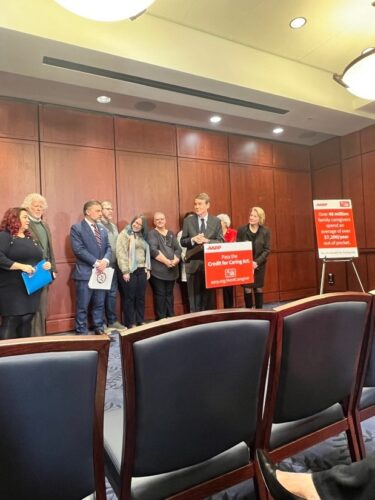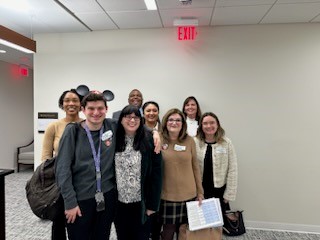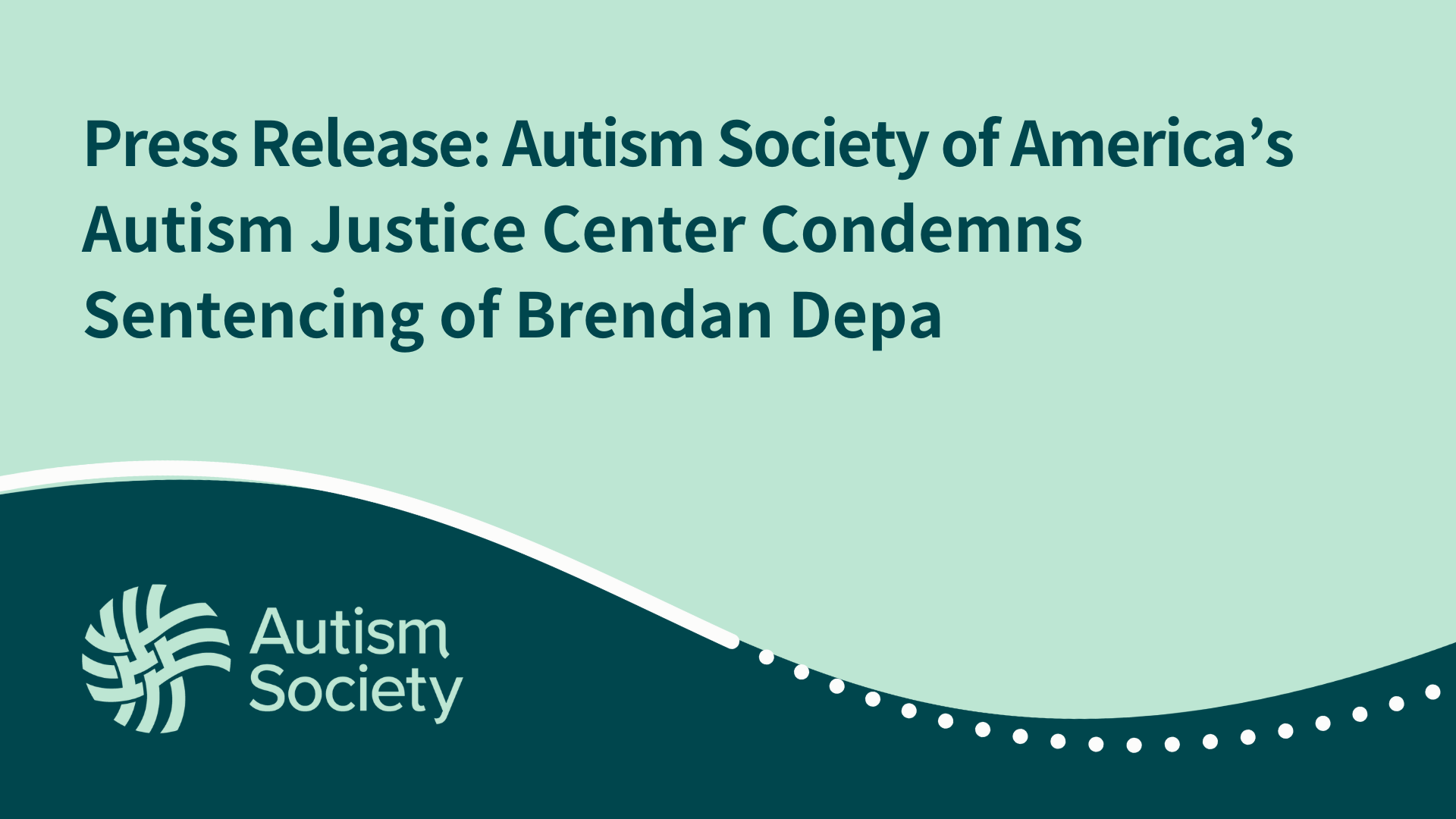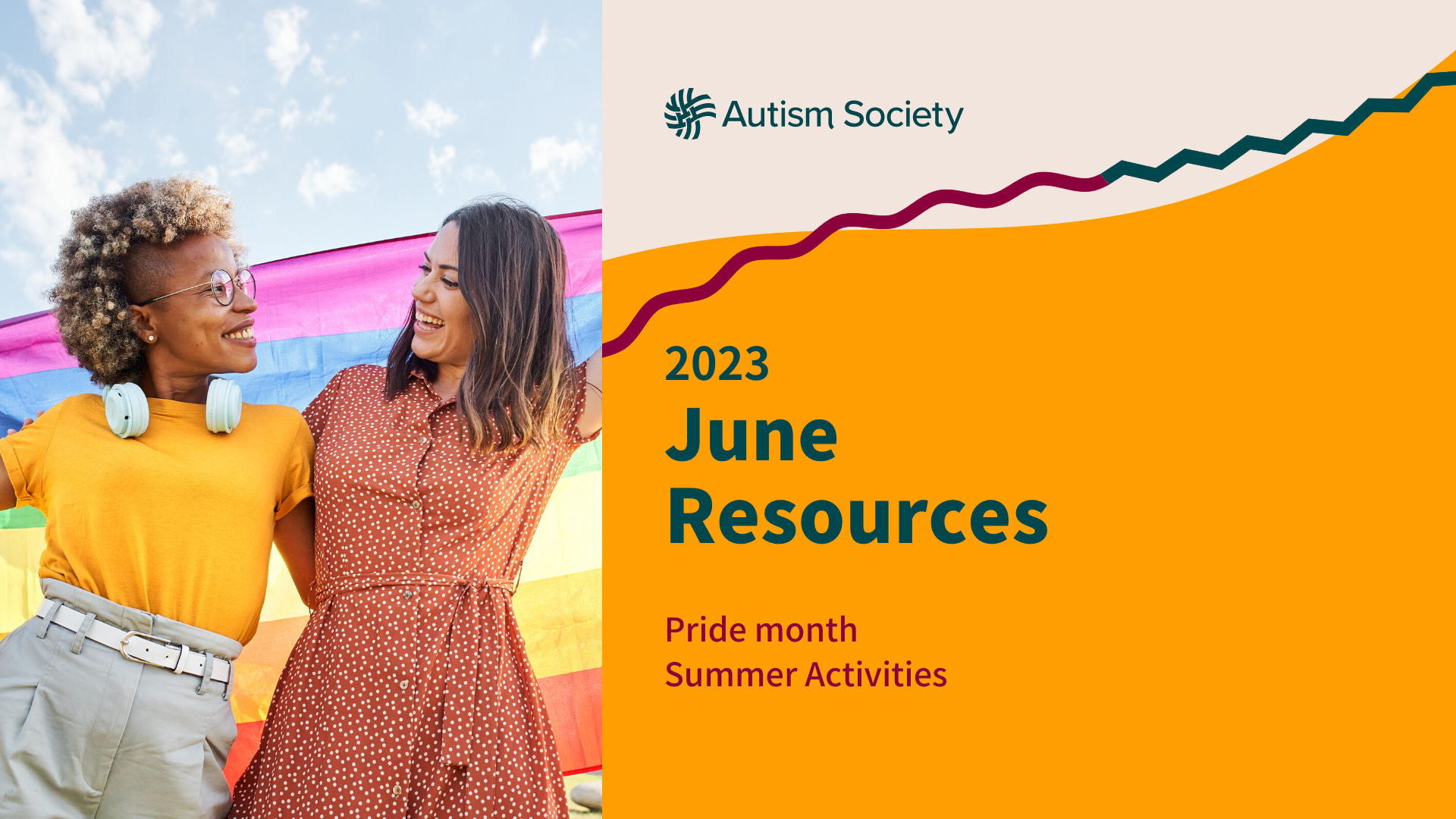
In this issue of Capitol Connection, find updates on appropriations, the Autism Society’s testimony on employment, state advocacy action, and news from the Justice Corner. Use the Autism Society’s Action Center to educate your Members of Congress on legislative issues important to you and your family. To easily keep up to date on your opportunities to take action, text AUTISM to 50457 to receive our alerts.
Congressional Updates
Appropriations – Deal Reached on Fiscal 2024 Spending Bill Allocations
On January 7th, President Biden and Congressional Leaders released a bipartisan topline agreement on funding levels for Fiscal Year 2024 that includes $772.7 billion for non-defense discretionary (NDD) funding and $886.3 billion in defense funding. With these topline agreements in place, the House of Representatives and Senate can move forward with finalizing all twelve of the appropriations bills. It has been reported that Leadership has also agreed on how to allocate the funding among the twelve appropriations bills, although those funding levels are not yet public. The Appropriations Committee and subcommittees are now working to draft the twelve appropriations bills. Because of the delay in finalizing funding for FY 2024 that began on October 1, 2023, the President’s budget submission will be delayed until March 11.
Autism CARES Act
While House and Senate champions are still working to draft language for a bill to reauthorize the Autism CARES Act, a placeholder bill (HR 7213) was introduced in Congress to get things moving. We hope to have legislation to review soon. Meanwhile, please review our joint AUCD-Autism Society issue brief with recommendations and continue to educate Members of Congress about the need to reauthorize this important law.
Testimony on Employment Barriers
The Autism Society provided written testimony to the House Small Business Subcommittee on Innovation, Entrepreneurship, and Workforce Development for a hearing held on entrepreneurship and how to support individuals with disabilities. The Autism Society’s testimony outlined barriers to employment for individuals with Autism, including barriers related to discrimination, access to healthcare, and insufficient employment supports. This hearing can be streamed online.
401Kids Savings Act
On January 31st, Senator Bob Casey (D-PA) introduced the 401Kids Savings Act, aiming to create children’s savings accounts for every child in the U.S. The accounts, managed by state Treasurers, could be utilized for education, starting a business, buying a home, or retirement. The bill focuses on building generational wealth and economic self-sufficiency, particularly for kids from families with limited resources. Casey’s proposal aligns with the goal of providing financial opportunities to all children, addressing wealth inequality, and promoting economic prosperity.
Caregiver Tax Credit Bill
 The Autism Society participated in an event where Senators Michael Bennet (D-CO) and Shelley Moore Capito (R-WV), along with U.S. Representatives Linda Sánchez (D-CA) and Mike Carey (R-Ohio), reintroduced the Credit for Caring Act.
The Autism Society participated in an event where Senators Michael Bennet (D-CO) and Shelley Moore Capito (R-WV), along with U.S. Representatives Linda Sánchez (D-CA) and Mike Carey (R-Ohio), reintroduced the Credit for Caring Act.
This bill would provide up to a $5,000 federal tax credit for eligible and working family caregivers. AARP found that more than 48 million Americans are caregivers, and these caregivers provide approximately $600 billion in unpaid care each year so that their parents, spouses, and other loved ones can continue to live independently. The Credit for Caring Act would help cover the over $7,200 that many families spend yearly on out-of-pocket caring costs, such as home care aides, adult day care, respite care, transportation, and other supports.
Eliminating Marriage Penalty in SSI Act (EMPSA)
On January 23rd, Representative Valado (D-CA) introduced the Eliminating Marriage Penalty in SSI Act (EMPSA) alongside five original sponsors: Derek Kilmer (D-WA), Lisa Blunt Rochester (D-DE), Mike Lawler (R-NY), and Marc Molinaro (R-NY). The EMPSA aims to address a longstanding issue within the Social Security Act concerning the Supplemental Security Income (SSI) for adults with intellectual or developmental disabilities (IDD), such as Autism. The current law imposes a detrimental “marriage penalty” on SSI beneficiaries, resulting in a 25% reduction in the asset limit for eligibility when two individuals receiving SSI decide to marry. This penalty unfairly discourages individuals with IDD from pursuing marriage, making it a pressing matter to rectify for the sake of equality.
SSI Restoration Act
On January 30th, Reps. Raúl M. Grijalva (D-AZ), Jan Schakowsky (D-IL), and Elissa Slotkin (D-MI) reintroduced the SSI Restoration Act. Currently, over 69 million people receive benefits from Social Security, SSI, or both, including nearly 14 million people with disabilities and their spouses and children. However, many parts of the Social Security and SSI disability systems need to be strengthened to better meet the needs of people with disabilities. This bill would improve SSI by streamlining the claiming process, increasing asset limits, setting the minimum benefit at 100 percent of the Federal Poverty Level, and eliminating punitive reduction in benefits. The SSI Restoration Act would strengthen SSI by supporting independent living of individuals with disabilities and allowing individuals with disabilities to engage in independent work without fear of losing benefits.
State Advocacy
Virginia Autism Advocacy Day at the Capitol
The A utism Society of America participated in the Autism Advocacy Day in coordination with the Virginia affiliates and other Autism state advocacy groups. Over 112 legislators met with Autism advocates to discuss important issues in the state including HCBS waivers, direct support professionals and reimbursement rates, Autism police training, accessible voting, higher education, and more.
utism Society of America participated in the Autism Advocacy Day in coordination with the Virginia affiliates and other Autism state advocacy groups. Over 112 legislators met with Autism advocates to discuss important issues in the state including HCBS waivers, direct support professionals and reimbursement rates, Autism police training, accessible voting, higher education, and more.
States Coverage on Shortage of Direct Support Workers
Local news in Idaho, Illinois, Indiana, and New York are all covering the shortage of direct support workers and its impact on individuals with disabilities. The shortage is further exacerbated in these states due to changes and cuts to Medicaid and waiver programs. In New York, a mother of a son with Autism spoke on how staff turnover in her son’s group home triggers his behaviors since he is not familiar with the staff. The high turnover results in less trained staff who are not aware of different laws and protocols. In Ohio and Indiana, they are planning to reduce coverage of paying family caregivers due to budgetary issues. See all news coverage below.
- A plea for change: The dire state of Idaho’s direct care workforce must be addressed | Idaho Capital Sun
- State to make cuts to care for developmentally disabled in Illinois | WCIA
- Providers warn of a worsening staffing crisis for caregivers of New Yorkers with disabilities | WXXI News
- Medicaid cutbacks could affect home caregivers | 953MNC Indiana
- Proposed changes to Medicaid waivers would end certain payments to caretakers | WRTV Indianapolis
- Medicaid changes ‘devastating’ for parents taking care of disabled children | Wane Ohio
Medicaid Unwinding Blog on Lessons Learned
The Center on Budget and Policy Priorities (CBPP) published a blog on lessons learned from Medicaid unwinding. Many states are not following federal requirements when it comes to submitting renewals, screening for all categories of eligibility, and guidelines for ex-parte renewals. Even if states do allow online or by-phone renewals, the websites are hard to navigate, and the call centers are understaffed.
CBPP did find that the Centers for Medicare and Medicaid Services are doing more than they have in the past to push and hold states accountable.
Justice Corner
David Joyce Award and Webinar on Internet Safety
The Autism Society of America awarded the 2023 David Joyce Self-Advocate of the Year to Mr. Neli Latson. The Award recognizes the outstanding contributions of Autistic individuals who have dedicated themselves to raising awareness, advocating for inclusion, and fostering understanding of the unique challenges faced by individuals on the Autism spectrum. Neli Latson served 10 years for an arrest that did not take into consideration his diagnosis of Autism and denied him accommodations. Neli currently serves as an ‘ambassador’ to the Autism Justice Center, where his lived experiences provide invaluable insights into crucial focus areas, including Autism in jails and prisons, Autism in police encounters, and the intersection of race, disability, and the criminal legal system. See the press release and watch the Award Ceremony. This award ceremony took place during a Self-Advocacy workshop on internet safety which was co-hosted by the National Association of Councils on Developmental Disabilities. Two experts discussed how to stay safe online.
January IACC Meeting
On January 24th, the Autism Society presented at the Interagency Autism Coordinating Committee (IACC) meeting on criminal legal issues and their impact on the Autism community. IACC focused on criminal legal issues and the intersection of disability and race. Carlean Ponder, Director of the Autism Justice Center, presented on our newly formed Autism Justice Center, and Amanda Wroten, Director of Safety on the Spectrum, discussed strategies to support law enforcement officials. The meeting can be watched here.
New Autism Justice Center website!
Speaking of the Justice Center… We are excited to announce that we now have a section of the Autism Society’s website dedicated to the Justice Cener. Individuals with Autism and others with developmental disabilities confront discrimination, affecting vital areas such as housing, healthcare, employment, education, and the criminal legal system. The Autism Justice Center focuses on Empowerment, Advocacy, and Justice. See the new website here: Autism Justice Center | Autism Society. For questions or comments, contact Carlean Ponder at Cponder@autismsociety.org.
MD Consent Decree Regarding Health
In other news, the Justice Department announced that it filed a complaint and proposed consent decree in the U.S. District Court for the District of Maryland to resolve allegations that MedStar Health Inc., a leading health care provider in Maryland and the Washington, D.C., region, violated the Americans with Disabilities Act (ADA) by denying people with disabilities equal access to medical care by excluding their necessary support persons. “For some people with disabilities, having a family member, aide or other support person by their side is critical to ensure they have the same access to health care as everyone else,” said Assistant Attorney General Kristen Clarke of the Justice Department’s Civil Rights Division. For more information read the press release.
Share:




